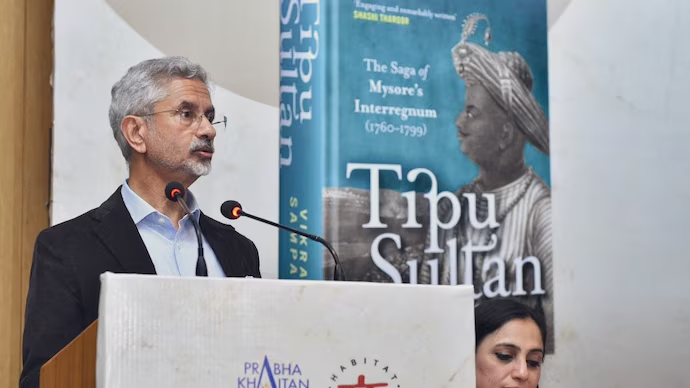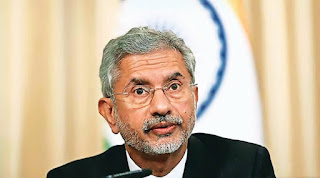Waqf, meaning to detain or to hold or tie up, is rooted in Islamic principles of charity.
Waqf denotes a lasting endowment where property is set aside for religious, philanthropic, or communal purposes, with ownership entrusted to Allah.
When 70-year-old farmer Rajagopal from Tamil Nadu's Trichirappalli district tried to sell his 1.2-acre plot for his daughter's wedding, he was left shocked. At the sub-registrar's office, he got a 20-page document saying that his land was, in fact, owned by the Tamil Nadu Waqf Board.
Not just Rajagopal's plot, his entire village of Thiruchenthurai, home to the 1,500-year-old Sundareswarar Temple, was apparently Waqf land. All the villagers were left scratching their heads.
This 2022 incident in Thiruchenthurai wasn't an isolated case, 18 other nearby villages were also claimed to be Waqf property.
The total Waqf land in India stands at 9.4 lakh acres, which is approximately 3,804 square kilometres. The process that converted a huge swathe of land that is now considered Waqf property began with the gift of just two villages.
Many experts believe that, after the Indian Railways and the Indian defence forces, the Waqf Boards, collectively, are the third-biggest property-holders in India. This all began at the very end of the 12th century in Punjab's Multan, part of undivided India, and flourished with sultans sitting on the throne in Delhi and ruling over Hindustan.
This makes the Waqf properties irrevocable and immune to sale or transfer. This means, once property is entrusted in Allah, it can't be reclaimed.
The ongoing Winter Session of Parliament has seen chaos and heated exchanges over the Waqf Amendment Bill introduced by the BJP-led Centre. The Bill, aimed at reforming the management and regulation of Waqf properties across India, is currently with the Joint Parliamentary Committee for discussions.
Now the Waqf Bill may be tabled during the Budget Session in February 2025, according to sources cited by India Today.
Against the backdrop of these discussions and debates on the Waqf Amendment Bill, it is interesting to note how the concept of Waqf came to India with Afghan invader Muhammad Ghori.
GHORI'S INVASION: THE GIFT OF TWO VILLAGES AND THE BIRTH OF WAQF IN INDIA
With the early Islamic conquest of Multan by Muhammad Ghori, who defeated the Ismaili ruler in 1175, and the subsequent defeat of the Rajput king Prithviraj Chauhan in 1192, Delhi, along with much of northern and northwestern India, came under his rule.
Muhammad Ghori, an invader of the Ghurid dynasty, after establishing his rule over Punjab, made the first recorded Waqf donation in 1185.
Not just that, Ghori's victory against Prithviraj Chauhan in the Second Battle of Tarain in 1192 started Islamic rule in India. After his death in 1206, his slaves took charge of his kingdom and started the Slave Dynasty.
Those Muslim rulers and the sultans who occupied Delhi's throne after them, institutionalised the system.
Sultan Muizuddin Sam, also known as Muhammad Ghori, gifted two villages to the Jama Masjid of Multan and entrusted their management to the Shaikh-al-Islam, a title given to a prominent religious leader, according to Insha-i-Mahru, a Persian book by Aynul Mulk Multani.
Multani's book is a collection of hundreds of letters and their samples used as letters for official correspondence during that period. Letter number 16 said that the early Waqfs primarily served religious and charitable purposes. They supported mosques, madrasas, dargahs, and other community welfare institutions, according to historian Vipul Singh's Interpreting Medieval India.
In 1191, Rajput king Prithviraj Chauhan defeated Muhammad Ghori in the First Battle of Tarain but spared his life. In the Second Battle of Tarain in 1192, Chauhan faced defeat at Ghori's hands.
Sultan Muizuddin Sam, also known as Muhammad Ghori, gifted two villages to the Jama Masjid of Multan and entrusted their management to the Shaikh-al-Islam, a title given to a prominent religious leader, according to Insha-i-Mahru, a Persian book by Aynul Mulk Multani.
Multani's book is a collection of hundreds of letters and their samples used as letters for official correspondence during that period.
Letter number 16 said that the early Waqfs primarily served religious and charitable purposes. They supported mosques, madrasas, dargahs, and other community welfare institutions, according to historian Vipul Singh's Interpreting Medieval India.
ends








































